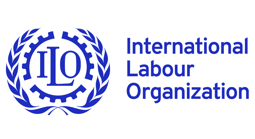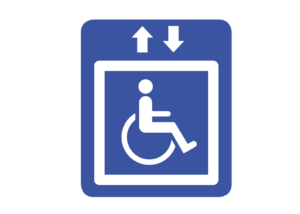The Administrative Tribunal of the International Labour Organization (hereinafter referred to as ILO) has, since 1947 been the competent judicial body to hear disputes that may arise with officials or former officials of the ILO, but it is also competent if any international organization has recognized it as such in its Statutes.

Written by Cyrielle Agut
Employment lawyer - Spanish, English, French

Josep Conesa Sagrera
English-speaking lawyer in Barcelona
Lawyer & Master's Degree in EU Law and Fundamental Rights
INTERNATIONAL ORGANIZATION EMPLOYMENT LAWYER
Our background advising international organisations and their employees has allowed our firm to become an expert in advising and defending rights related to:
INTERNATIONAL AGENCIES:
- FAO Food and Agriculture Organization of the United Nations
- ICAO International Civil Aviation Organization
- IFAD International Fund for Agricultural Development
- ILO International Labour Organization
- IMF International Monetary Fund
- IMO International Maritime Organization
- ITU International Telecommunication Union
- UNESCO United Nations Educational, Scientific and Cultural Organization
- UNIDO United Nations Industrial Development Organization
- UNWTO World Tourism Organization
- UPU Universal Postal Union
- WHO World Health Organization
- WIPO World Intellectual Property Organization
- WMO World Meteorological Organization
- WORLD BANK GROUP7
- IBRD International Bank for Reconstruction and Development
- IDA International Development Association
- IFC International Finance Corporation
INTERNATIONAL ORGANIZATIONS:
- CTBTO Preparatory Commission for the Comprehensive
- Nuclear-Test-Ban Treaty Organization
- IAEA1, 3 International Atomic Energy Agency
- ICC International Criminal Court
- IOM1 International Organization for Migration
- ISA International Seabed Authority
- ITLOS International Tribunal for the Law of the Sea
- OPCW 3 Organization for the Prohibition of Chemical Weapons
- WTO1, 4 World Trade Organization
- CdE, Council of Europe
- EU, European Union
- EAEC or Euratom, European Atomic Energy Community
- F4E Fusion for Energy
INTER-GOVERNMENTAL ORGANIZATIONS:

Take note internal proceedings regulated at each staff regulations should notmaly be exhausted before starting ILO's Court proceeding. Contact us if you need urgent help on this matter.
THE ADMINISTRATIVE TRIBUNAL OF THE INTERNATIONAL LABOUR ORGANIZATION (ILO)
The procedure and functioning of the Administrative Tribunal are regulated in the Rules of the Administrative Tribunal of the International Labour Organization, adopted by the Tribunal on the 24th of November 1993, and amended by the Tribunal on the 9th of November 2011, the 16th of May 2014, the 5th of November 2014, the 8th of May 2019, the 25th of June 2020, and and the 9th of May 2023.
Who is the ADMINISTRATIVE TRIBUNAL that will handle my claim made up of?
Currently, it consists of seven judges of different nationalities. This 'board' is chaired by its President (Mr. Patrick Frydman, of French nationality) and a Vice-President (Mr. Michael F. Moore, Australia).
However, the claim must be addressed to the "Greffe" (Registry of the Court) which will which will assess the correct fulfilment of the substantive and formal requirements of the complaint before submitting it to the Administrative Court.
HOW CAN I VERIFY THAT THE INTERNATIONAL ORGANIZATION IN WHICH I WORK RECOGNISES THE COMPETENCE OF THE ILO IN CASE OF CONFLICT?
This can be checked via the List available on the ILO's own website, or it may be possible to ascertain the jurisdictional competence established in the employment contract or signed mandate.
WHAT TYPE OF CLAIM DOES THE ADMINISTRATIVE TRIBUNAL HANDLE?
The TRIBLEX platform of the Administrative Tribunal of the ILO provides us with an extensive system for searching case law, through which we can access a summary and the ruling of the cases, and from which we can see that the cases tried are varied, but are always linked to their employmentnature, including, but not limited to:
- Against INTERPOL - Session 4813 of 2024: the claimant, a member of the Interpol staff with a fixed-term contract, has been notified of his failure to pass the probationary period due to low performance, and requests from the Tribunal the right to be reinstated within the organization or compensation for the termination of the contract.
- Against the ILO - Session 4810 of 2024: the claimant contests the ILO's decision not to reclassify his position.
- Against the EPO - Session 4800 of 2024: the claimant contests the denial of his request for paid leave for the very serious illness of his minor child.
- Against the FAO - Session 4470 of 2024: the claimant contests the business decision to dismiss him for disciplinary reasons.
- Against the WHO - Session 4763 of 2024: The claimant challenges the decision to dismiss her request to have her illnesses recognized as work-related.
- etc.
CAN I REPRESENT MYSELF when submitting MY CLAIM OR MUST I BE ASSISTED BY A LAWYER?
Although the ILO Regulations allow the worker/official of an international organisation to represent himself/herself in the preparation and processing of the preliminary claim, taking into account the complexity of the formalities involved in these matters, it is highly advisable to be assisted and represented by a lawyer who is a registered and practising in one of the ILO's Member States.
WHAT FORMALITIES MUST I FULFIL WHEN SUBMITTING A CLAIM TO THE ADMINISTRATIVE TRIBUNAL OF THE INTERNATIONAL LABOUR ORGANIZATION (ILO)?
- LANGUAGE: The ILO recognises two official languages: French and English. Expressly provided for in its regulations, the Administrative Tribunal indicates that the entire procedure must be conducted in a single language, with no possibility of switching from one language to another during the procedure.
- MEMORANDUM: it must detail the facts of the case and the grounds for the claim, according to the formalities detailed in Annex I of the Regulations.
- ADDITIONAL DOCUMENTATION: since the official languages of the procedure are French and English, any documentation written in another language and attached to the claim should be translated and certified.
- Five copies of all documentation submitted with the claim must be provided.
DO I HAVE TO APPEAR IN COURT?
In line with Article 11, the President may, on her or his own motion or on the application of either party, order such measures of investigation as she or he deems fit, including the disclosure of documents, the appearance of the parties before the Tribunal, the hearing of expert and other witnesses and the consultation of any competent international authority
CAN I WITHDRAW MY CLAIM?
If you want to withdraw your claim, either because the matter has been amicably resolved or for another reason, you must inform the President of the Tribunal or the "Greffe" in writing as soon as possible so that the Tribunal does not waste time on the case in question and may even register another case. A withdrawal cannot be accompanied by conditions. The defendant organization has the opportunity to make allegations against the withdrawal request.
IF I DISAGREE WITH THE JUDGEMENT, CAN I FILE ANY APPEAL?
The judgments handed down by the Tribunal are final and binding, and cannot be appealed.
However, an application for review of the judgment would be possible on one of the following grounds:
- Failure to consider certain facts.
- Material error.
- Failure to present conclusions.
- New facts that the claimant could not argue at the time of the procedure.
HOW IS THE JUDGMENT OF THE ADMINISTRATIVE TRIBUNAL OF THE INTERNATIONAL LABOUR ORGANIZATION (ILO) ENFORCED?
The judgments handed down have the authority of res judicata and must be enforced as pronounced. The parties must cooperate in good faith to this end. If the Tribunal has not set a deadline for the enforcement of an obligation, the judgments must be enforced within a reasonable period.
In order to determine whether this has been the case, all of the circumstances of the case, and in particular the nature and scope of the action required of the organisation, must be taken into account. When it appears that the defendant organisation does not intend to comply with its obligations or will delay the enforcement of the judgment, the applicant may, after giving the organisation sufficient and reasonable time to enforce the judgment, request the Tribunal, through an enforcement appeal, to take note of the organisation's failure and order appropriate measures to be taken.
If you find yourself in need of guidance or legal assistance regarding a claim with the Administrative Tribunal of the International Labour Organization, don't hesitate to reach out to us. Our team is ready to provide comprehensive support and help to navigate the process effectively.





